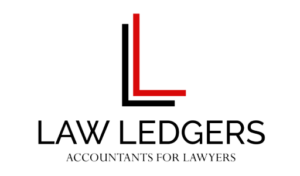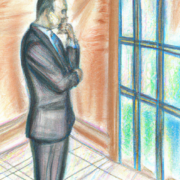Identifying and Avoiding The Counterfeit Check Scam
The legal community is not immune to the ever-present threat of fraud, and lawyers must remain vigilant in identifying and avoiding transactions that may involve counterfeit checks. This is the key message of the 2021 Formal Ethics Opinion 2 from the North Carolina State Bar, which discussed a lawyer’s professional responsibility to safeguard entrusted funds.
The fraudulent use of counterfeit checks is not a new issue facing the legal community, and state and federal agencies have issued warnings to the public about the existence and persistence of these scams. National and state bar associations, regulatory bodies, and malpractice carriers have also reported on the prevalence of such scams, which frequently target members of the legal profession.
Thus, lawyers must be alert to the potential for fraud in both the representation and the receipt and disbursement of funds. They have a professional responsibility to investigate and verify the authenticity of transactions, especially those involving unfamiliar or out-of-country entities, to safeguard the entrusted funds of their clients. By remaining vigilant and taking the necessary precautions, lawyers can help protect themselves and their clients from falling prey to counterfeit check scams.
What is a Counterfeit Check Scam?
A counterfeit check scam is a common form of fraud that has been around for a long time. In a typical scenario, a scammer sends a fake check to an unsuspecting lawyer, usually for an amount that is much higher than what the victim is expecting. The scammer then asks the lawyer to deposit the check and send back the excess funds. The check bounces, and the lawyer is left with no funds and, in some cases, may even face legal repercussions.
Counterfeit check scams can have devastating effects on law firms, as they can result in significant financial losses and damage to the firm’s reputation. Some examples of how counterfeit check scams can specifically impact law firms include:
- Law firms may be targeted by scammers posing as potential clients, who send fake checks as retainers for legal services. The scammer will then ask the firm to wire a portion of the funds back to them, leaving the firm responsible for repaying the bank the full amount of the fake check.
- Scammers may target law firms that handle large financial transactions, such as real estate closings, by sending fake checks to cover the closing costs. The firm may then be asked to wire a portion of the funds back to the scammer, leaving the firm liable for the full amount of the fake check.
- Law firms may also be targeted by scammers posing as vendors or service providers, who send fake checks as payment for services rendered. The scammer will then ask the firm to wire a portion of the funds back to them, leaving the firm responsible for repaying the bank the full amount of the fake check.
For example, the New York City Bar Association’s Formal Opinion 2015-3: Lawyers Who Fall Victim to Internet Scams discussed an example of a “typical scam”:
A common example of the internet-based scam begins with an email from an individual requesting assistance with an urgent transactional or litigation matter (the “email sender”). This email sender is generally located abroad, whereas the counterparty or adversary is usually located in the attorney’s jurisdiction. The email sender often proposes a contingency fee arrangement whereby the attorney would receive a percentage of the transaction total or litigation settlement. If the attorney sends a draft engagement letter, the email sender swiftly executes it. Soon thereafter, the email sender notifies the attorney that transaction has been consummated or the litigation has settled. As a result, the attorney performs little or no work before the engagement ends.
The attorney receives the closing or settlement check quickly. The attorney then deposits the check in the law firm’s trust account and, once the check has “cleared,” the attorney transfers his contingent fee into his operating account and wires the remainder of the funds to a foreign bank account designated by the email sender. Unfortunately, the attorney might not realize that a bank can “clear” a check and make the funds available before the bank actually collects the funds. The bank may take weeks or even months to discover that the check is fraudulent. When that happens, the bank will notify the attorney that the check was fraudulent.
If the trust account contains the funds of other clients, then those clients may be harmed because the bank may use those funds to cover all or part of the wire transfer. If the trust account contains no other client funds (or if the client funds are insufficient to cover the full amount of the wire transfer), then the bank will notify the attorney that his trust account is overdrawn, and will look to the attorney or the law firm to make up the deficiency.
In order to protect themselves from counterfeit check scams, law firms should take steps such as verifying the legitimacy of clients and vendors, being cautious of unsolicited offers, and thoroughly examining any checks received before depositing them.
A Lawyer’s Responsibility in Identifying and Avoiding Counterfeit Checks
As a lawyer, you have a duty of competency and diligence in representing your clients. This means that you must have the necessary legal knowledge, skill, thoroughness, and preparation reasonably necessary for the representation. You are also required to keep abreast of changes in the law and its practice, including the benefits and risks associated with the technology relevant to your practice, engage in continuing study and education, and comply with all continuing legal education requirements to which you are subject.
The recent ethics opinion issued by the North Carolina State Bar highlights a lawyer’s responsibility in identifying and avoiding counterfeit checks. The opinion addresses a scenario where a lawyer received a cashier’s check from a third party drawn on an out-of-country bank without investigating the authenticity of the check.
Specifically, the opinion addressed a situation where a lawyer received an unsolicited communication from a client seeking to collect debt from a third party. Despite not soliciting the client’s business, the lawyer agreed to file a lawsuit against the third party based on the documentation provided. Shortly thereafter, the third party reached out to the lawyer and expressed a desire to pay the debt without litigation. The lawyer subsequently received a cashier’s check from the third party, which was drawn on a foreign bank and dated prior to the earlier conversation. However, the lawyer did not investigate the authenticity of the check, nor did they conduct any further investigation into the third party.
The North Carolina State Bar’s opinion finds that the lawyer’s failure to investigate the foreign bank cashier’s check was a violation of their duties of competence and diligence under the Rules 1.1 and 1.3 of the Rules of Professional Conduct. A lawyer’s duty of competency requires them to possess the necessary legal knowledge, skill, thoroughness, and preparation reasonably necessary for the representation. Comment 8 to Rule 1.1 further emphasizes the importance of keeping abreast of changes in the law and its practice, including the benefits and risks associated with technology relevant to the lawyer’s practice.
How to Avoid Falling Victim to a Counterfeit Check Scam
Generally, to avoid falling victim to a counterfeit check scam, there are several steps that you can take:
- Be cautious of unsolicited communications from potential clients.
- Conduct thorough investigations of potential clients and third parties.
- Verify the authenticity of any cashier’s checks, particularly those drawn on out-of-country banks.
- If you suspect that you have received a counterfeit check, contact your bank immediately.
- Report any suspected fraudulent activity to the appropriate authorities, including your state bar association.
Watch Out For Red Flags
More specifically, the New York City Bar Opinion notes that lawyers should be on alert for certain “red flags” that may signal fraud, such as:
- The email sender is based abroad.
- The email sender does not provide a referral source. (If the email sender is asked how he found the firm, he may respond that it was through an online search. If prospective clients rarely approach the recipient attorney based on an Internet search, this should be an immediate red flag.)
- The initial email does not identify the law firm or recipient attorney by name, instead using a salutation such as “Dear barrister/solicitor/counselor.”
- The email uses awkward phrasing or poor grammar, suggesting that is was written by someone with poor English or was converted into English via a translation tool.
- The email is sent to “undisclosed recipients,” suggesting that it is directed to multiple recipients. (Alternatively, the attorney recipient may be blind copied on the email.)
- The email requests assistance on a legal matter in an area of law the recipient attorney does not practice.
- The email is vague in other respects, such as stating that the sender has a matter in the attorney’s “jurisdiction,” rather than specifying the jurisdiction itself.
- The email sender suggests that for this particular matter the attorney accept a contingency fee arrangement, even though that might not be customary for the attorney’s practice.
- The email sender is quick to sign a retainer agreement, without negotiating over the attorney’s fee (since the fee is illusory anyway).
- The email sender assures the attorney that the matter will resolve quickly.
- The counterparty, if there is one, will also likely respond quickly, settling the dispute or closing the deal with little or no negotiation.
- The email sender insists that his funds must be wired to a foreign bank account as soon as the check has cleared. (The sender often claims that there is an emergency requiring the immediate release of the funds.)
- The email sender or counterparty sends a supposed closing payment or settlement check within a few days. The check is typically a certified check or a cashier’s check, often from a bank located outside of the attorney’s jurisdiction.
As a lawyer, you have a professional responsibility to safeguard entrusted funds by identifying and avoiding purported transactions involving counterfeit checks. This is a critical part of your duty of competency and diligence in representing your clients. By staying informed about the risks of counterfeit check scams and taking appropriate precautions, you can protect your clients, your reputation, and your practice’s financial health.
Please note that the information provided on this website is for general informational purposes only and is not intended as legal or tax advice. The information is subject to change, and it is important to consult a specialist before making any decisions. Law Ledgers provides accounting services to New York lawyers and law firms, including escrow protection, tax advice and bookkeeping administration. Contact us today for personalized support.









